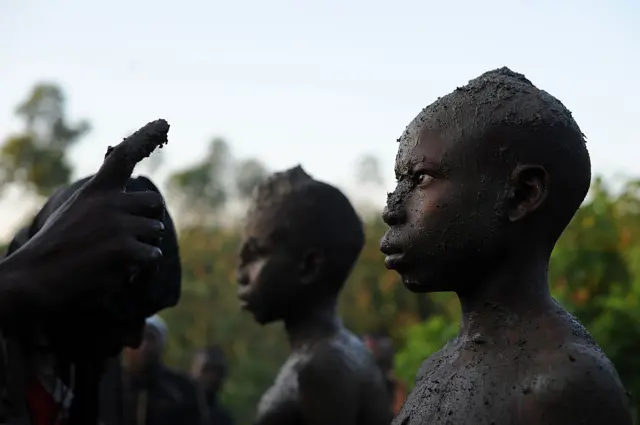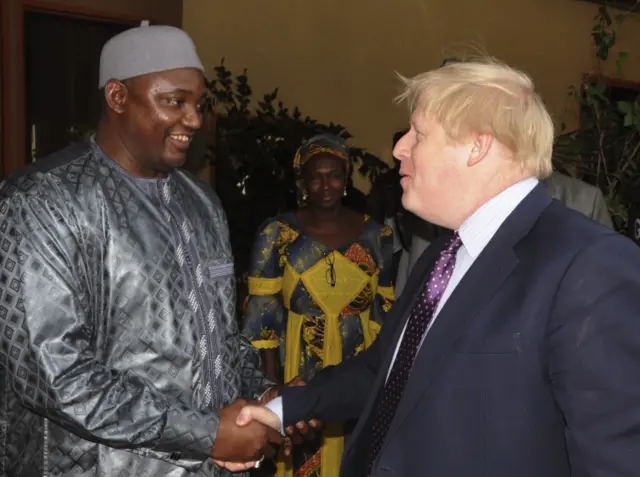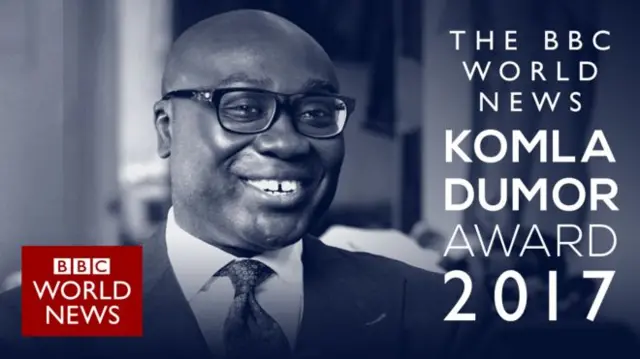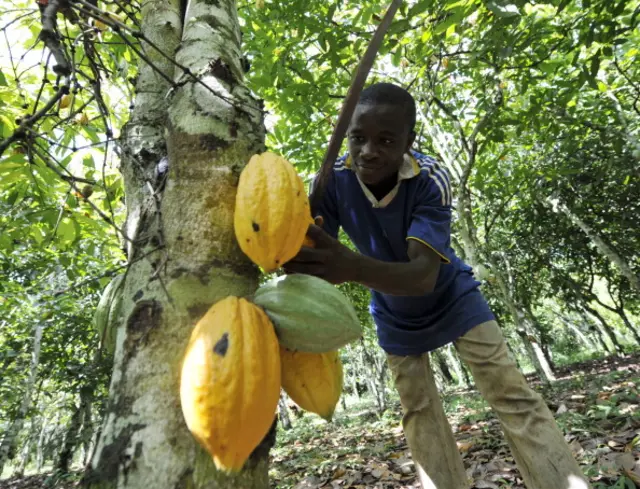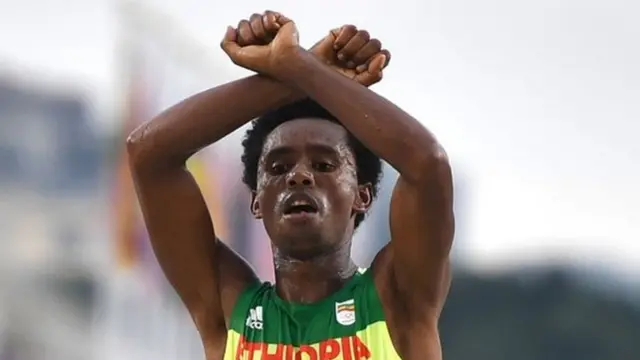Asamoah Gyan warned over 'unethical hair' in UAEpublished at 11:26 GMT 15 February 2017
Ghana's international striker Asamoah Gyan is among a group of more than 40 players deemed to have "unethical hair" under United Arab Emirates Football Association guidelines.
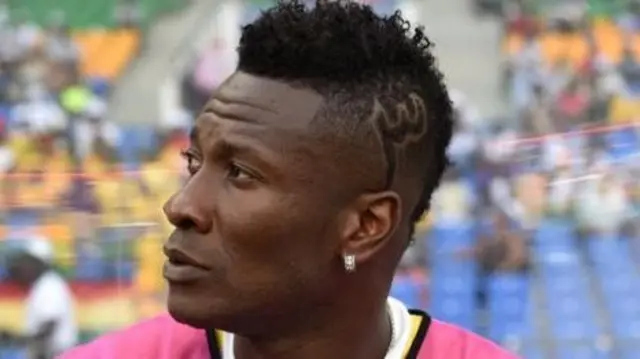 Image source, Getty Images
Image source, Getty ImagesUnder United Arab Emirates Football Association guidelines, Gyan's haircut is unfit for purpose.
The mohawk-style cut, as sported by the 31-year-old Ghanaian, is regarded as un-Islamic by some conservative Muslims.
Some Islamic teachings ban so-called "Qaza" hairstyles, including Gyan's cut, because only part of the head is shaved, leaving other parts unshaven.
It got us thinking: Which other African players' hairstyles would not go down well in The Gulf?
 Image source, Getty Images
Image source, Getty Images1. With his iconic Mauhawk-style hair, Pierre-Emerick Aubameyang, the charismatic Gabon and Borussia Dortmund star could definitely find himself falling foul of the rules.
 Image source, Getty Images
Image source, Getty Images2. Ivory Coast's Serge Aurier is often in the news in France for the wrong reasons, including mouthing insults at referees.
If he joined a team in the Gulf, his dyed orange hair would probably add to his troubles with the authorities.
 Image source, Getty Images Sport
Image source, Getty Images Sport3. With his full head of hair in an Afro style, Benoit Assou-Ekotto of Cameroon would surely be a no-go.
And for anyone planning on rebelling against the system, it's worth remembering the case of Saudi Arabia goalkeeper Waleed Abdullah, who was required to have a last-minute haircut, external on the side of the pitch before being allowed to play in a game in 2012.

